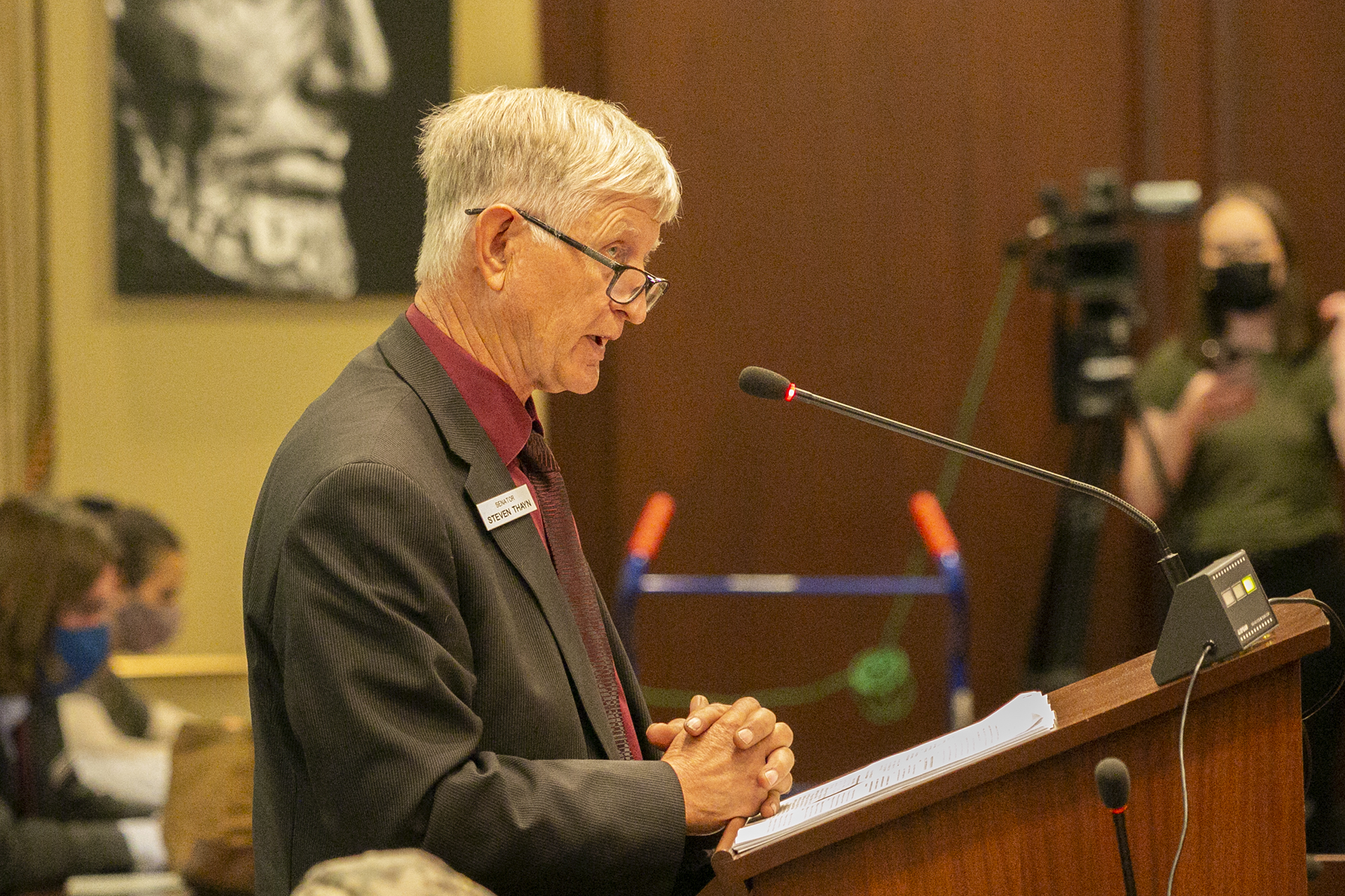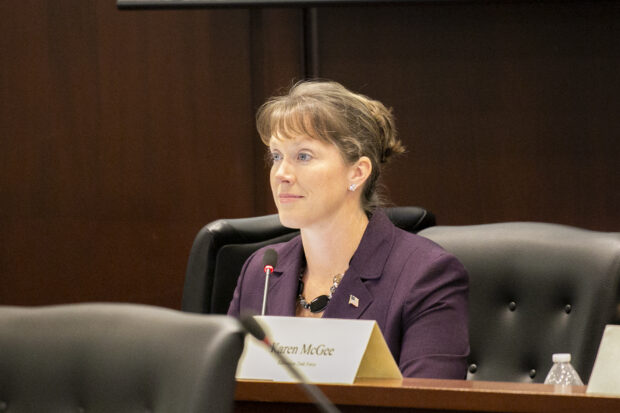
For 16 hours, spread across four monthly meetings, Lt. Gov. Janice McGeachin’s hand-selected education task force tried to convince anyone listening that Idaho schools have a pervasive leftist indoctrination problem.
Then, at the end of its fourth meeting, the task force spent an hour sketching out recommendations.
Whether those Aug. 26 recommendations turn out to be an afterthought — or an asterisk or an anticlimax — won’t be entirely up to the task force, or McGeachin. The group has to take its general ideas and try to distill them down into some actual policies. But then, it will come down to what legislators do, or don’t do, with the proposals.
The task force needs lawmakers — specifically, like-minded conservatives who hold considerable sway at the Statehouse — because the task force is otherwise short on allies. McGeachin and her indoctrination grand jury won’t get buy-in from education’s established lobbying groups, which have questioned the group’s makeup and motivations. And Gov. Brad Little isn’t going to embrace anything from McGeachin’s camp — not in the runup to the May gubernatorial primary.
There isn’t much the task force can do on its own. It can make good on its plans to comment on the State Board of Education’s proposed campus diversity, equity and inclusion policy. (Spoiler alert: Bet on the task force to come after Little’s State Board on this one.) But everything else will require the Legislature’s help.
Which makes one of the task force’s six recommendations a bit self-evident: work with the House and Senate education committees. “OK, that sounds good,” said Senate Education Chairman Steven Thayn, R-Emmett. But after reading over the recommendations, Thayn withheld judgment; “I didn’t get a good sense of what they were trying to do.”
On school choice, the task force was vague by consensus.
Task force member Ryan Spoon pushed hard for a specific school choice recommendation: education savings accounts that would allow parents to move money into the public, charter or private school they prefer. As a parent who sends his kids to private schools, he said the only way to force change is to give parents the power of the pocketbook.
“We can try to coax the system into stopping what they are doing,” he said. “But (public educators) have demonstrated that they are committed, beyond the law, beyond reason. This is an ideology that they will pursue, no matter what.”
But several task force members questioned whether a school choice recommendation had anything to do with the indoctrination issues they’d discussed all summer. So the group went with a generic endorsement of choice — using Spoon’s language on education savings accounts as an example of what choice could look like.
Task force members agreed to keep working on its ideas, and spokesman Jordan Watters said McGeachin “will continue to work with interested parties as she moves forward with the recommendations.” But with or without the task force’s input, school choice will surely be a topic during the 2022 legislative session.
Independent of the task force, Rep. Wendy Horman says she plans to pursue another bill to provide state-funded scholarships for students to attend nonpublic schools. Horman, R-Idaho Falls, believes the momentum for school choice is growing — as the pandemic and its uncertainties are leaving parents clamoring for options.
In theory, the task force enters this process at a tactical disadvantage. The task force isn’t a legislative interim committee — formed by lawmakers, made up of lawmakers and assigned to spend the offseason taking a deep dive into a topic. Lawmakers often act on ideas from their interim committees. But after spending three years on an interim committee studying Idaho’s byzantine school funding formula, Horman knows the interim committee process isn’t a guarantee of success.
“Not every interim (committee) leads to actual legislation,” she said with a chuckle.

Only one lawmaker served on the task force — Rep. Priscilla Giddings, R-White Bird, a lieutenant governor’s candidate who is McGeachin’s de facto running mate. And that poses an obstacle. “They don’t have a ready-made group of people to advocate for the task force,” Thayn said.
For much of the summer, the task force seemed to exist, to advance the viewpoints and elevate the political profile of its co-chairs. Last week’s policy discussion, general as it was, came at the end of a long and strange afternoon.
By the time the meeting staggered past the end of business hours, the Statehouse’s largest committee room was conspicuously barren. As the task force chewed over the school choice recommendation, the reporters outnumbered the constituents — which probably didn’t sit too well with McGeachin, hours after losing a lawsuit over task force documents she has withheld from the media.
The four-hour public comment period had its odd moments as well. Task force members did little to hide their opinions — treating like-minded speakers with deference, but quizzing two skeptical speakers about their ties to Black Lives Matter. And after Boise High School junior Shiva Rajbhandari scolded McGeachin for scheduling the public comment period during a school day, Spoon had evidently heard enough.
“I’m sorry you’ve been disappointed by the difficulty in providing testimony to this task force, given that we didn’t conveniently place it within your summer vacation,” he said. Those of us on the task force have difficulty relating to that because we earn money for our families year-round, so that’s probably something that we didn’t realize.”
Perhaps this task force wasn’t terribly interested in listening to Idahoans.
But now the question is whether legislators are interested in listening to the task force.
More reading: Task force member Elaine K. King criticizes Idaho Education News’ coverage of the Aug. 26 meeting.
Each week, Kevin Richert writes an analysis on education policy and education politics. Look for his stories each Thursday.
